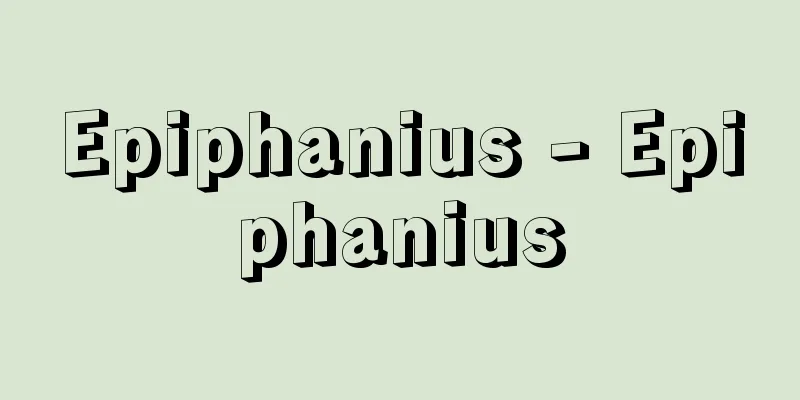Immanuel

|
…The original Greek word parousia means “coming, presence,” and there is no distinction between the first and second. This comes from the understanding of salvation in Isaiah 7:14, which gives the name of the Messiah Immanuel (meaning “God with us”). Therefore, even if the first and second can be distinguished in the sense of part and whole, incomplete and complete, they cannot be considered as different things. *Some of the terminology that mentions "Immanuel" is listed below. Source | Heibonsha World Encyclopedia 2nd Edition | Information |
|
…ギリシア語の原語パルシアparousiaは〈来臨,臨在〉の意で,これには第1のそれと第2のそれとの区別はない。これは〈インマヌエルImmanuel〉(〈神われらと共に〉の意)をメシアの名とした《イザヤ書》7章14節の救済理解からくる。そこで第1と第2を部分と全体,不完全と完全の意味で区別しえても,別種のものとはなしえない。… ※「Immanuel」について言及している用語解説の一部を掲載しています。 出典|株式会社平凡社世界大百科事典 第2版について | 情報 |
Recommend
Krstić (English spelling)
1851‐1907 A Yugoslav (Serbian) painter. He receive...
Unpaired electron - Unpaired electron
This refers to electrons that are not paired with...
Mahan (English spelling)
One of the Three Han in ancient South Korea. From ...
cuff
...the former is an application of an electrical ...
Greater adjutant (English name: Leptoptilos dubius; greater adjutant)
Order Ciconiiformes, Family Ciconidae. Average len...
Anise oil - anisuyu (English spelling)
An essential oil. Also called aniseed oil. When t...
ell
…Here we can see a typical example of the idea of...
Kinka Boar
A breed of pig. Native to the Jinhua region of Zhe...
Izumi Yosuke
1829-1900 An inventor from the Meiji period. Born...
Limit - Bungen
It refers to the degree or quantity of something,...
Digesta; Pandectae
The Code, which has the greatest content and the g...
Ibn Sa'īd
1213‐86 Arab historian, poet, and geographer of An...
skipjack
…The name katsuo (bonito) is said to have come fr...
ATS (Satellite)
...Other medium altitude meteorological satellite...
Aizen Ouhou - Aizen Ouhou
This is an esoteric Buddhist ritual performed with...









